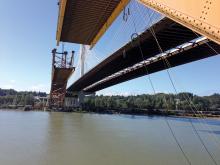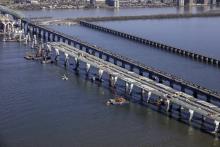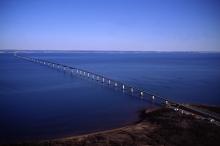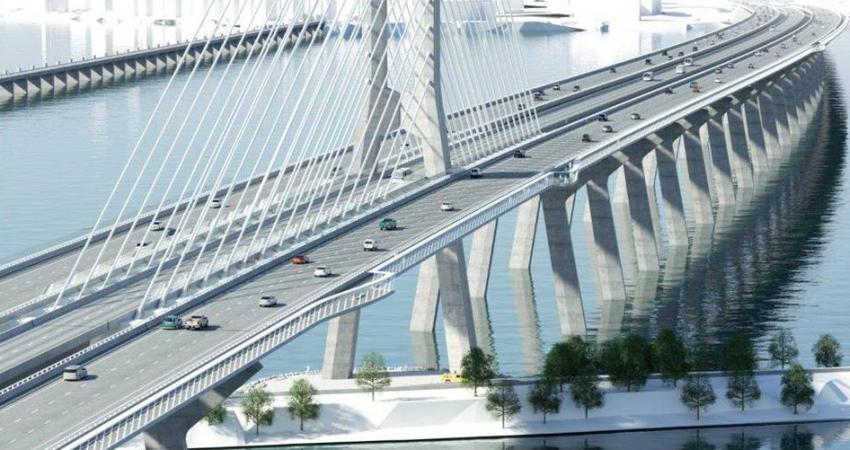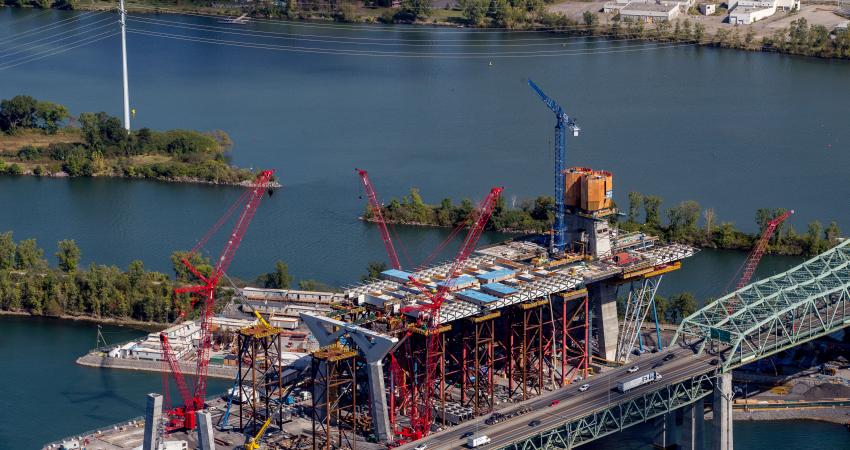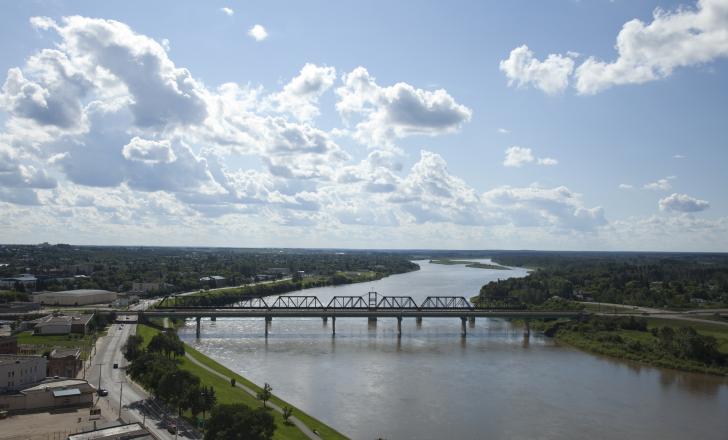
The western Canadian city of Prince Albert will not toll the ageing Two-lane Diefenbaker Bridge after city council vetoed the proposal.
The bridge was opened in 1960 and is maintained by the city under a 1958 agreement whereby the province of Saskatchewan covers 50% of structural repair costs. Tolling would have helped pay for a second crossing of the North Saskatchewan River and local residents could have been exempt from paying.
Around 24,000 vehicles use the bridge daily, with peak hours reaching 2,500. The city and surrounding area has population of about 45,000. The bridge is named after Canada’s 13th prime minister, John Diefenbaker, in office from 1957–63.
The 305m-long bridge is continuous over seven spans but consists of two structures: one northbound and one southbound. Each structure is a two-plate girder steel bridge. A canoeist passing under the bridge in 2011 noticed a crack in the southbound structure and the police quickly closed the bridge pending a study.
According to Stantec Engineering, “the bridge had actually fractured—there was a major crack running from the bottom flange nearly the full height of the girder—one of the largest fractures of its kind”.
Analysis found the cracks were caused by constraint induced fracture. CIF happens at gusset plate connections where loads applied by several members, stiffeners and gusset plates result in high triaxial tension. This hampers ductile behaviour of the connection, triggering flaw growth leading to fracture.
Repairs consisted of three large towers erected underneath the structure: one tower on each side of the fractured girder and a third tower under the non-fractured girder. All the floor beams and cross-bracing were supported. Finally, the old section of the fractured girder was removed and replaced with a new section.

